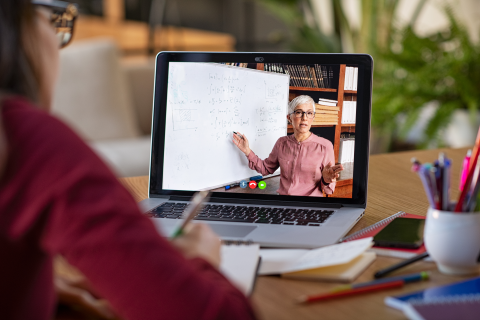
iStock
Nevertheless, the last two weeks have demanded educators embrace a level of unprecedented change. That need will not abate soon. As Seventh-day Adventist educators, how do we respond, and how perhaps can that response model a way that we all can live in our current challenging environment?
First, let me tell you a little of the last three weeks at Andrews University. Three weeks ago, life was still comparatively normal. We had a concert on the campus as part of our regular season of music performances. We had a graduate student gala night. Mid-terms were coming up; spring break was a week away. Coronavirus (COVID-19) was beginning to impact the United States but Michigan was on the edges of that.
Two days later, although there were only two confirmed cases in Michigan but looking at the developments throughout the country, we decided to move to remote learning for the rest of the semester. Executive orders and recommendations from the Governor’s Office happened almost simultaneously and, within two days, the campus had been informed and students starting leaving.
That was just the beginning of the changes. As the campus emptied, we heard our guest singer at the beginning of March had tested positive for COVID-19. Three positive tests on campus followed, and a large number of quarantines/self-isolations. Faculty who had never taught remotely geared up to do so in order for students to complete the semester. Students who needed to stay on campus moved into single rooms and prepared to make their rooms their learning space. The University identified who was essential to continue operations while we moved to a more remote form of operations. Our staff imagined new ways of working from home. Some staff faced reduced hours or furloughing. All of this in a matter of days.
Change brings fear — and possibility. It can make us withdraw to keep safe, and it can make us reach out in new ways to keep important connections. It can rip a community apart and it can deepen its ties in new and innovative ways. As for Andrews University, I have been humbled by the amazing, committed and creative students and employees that I work with and for. From creative teaching delivery, to a wealth of spiritual and personal support programs and tools, to personal commitments of support to the University and wider community: I have seen it all. Again, all in a matter of days. Word on the street is that higher education is one of the slowest institutions to change, yet I have seen my colleagues pivot to a new environment of learning and working, not just rapidly, but in a way that emanates positivity, faith and hope.
So how can our experience help us all know how we can live in this current fearful environment of change?
Let’s look at the Israelites and their journey through the wilderness. The Israelites had grown used to a life in Egypt. True, they were slaves, but they knew what to expect. So it is not surprising that once they left Egypt and were in the wilderness facing uncertainties every day, that they kept looking backwards. “If only we had never left Egypt” was their common cry. No matter what miracles God performed on their behalf, how He gave evidence of His daily presence, when something went wrong, the cry went up again, “If only we had never left Egypt!”
Then they stood on the edge of the Promised Land. God’s promise lay ahead but the barriers were just too immense and the majority fears of yet more change took over. The giants in the land would overcome them; they were merely “as grasshoppers.” They should go back to Egypt. We know what happens. The Israelites are forced to turn away from the promised future and spend another 40 years in the wilderness before the time for entering the Promised Land comes again.
How does this example help us in our current environment? I would suggest that the greatest risk to us personally and spiritually from massive change is that we are so overwhelmed with the loss of what is normal and so fearful of what may come that we can lose sight of what remains secure. In the case of the Israelites, what remained secure was God’s leading and presence. Joshua and Caleb, the two spies that were ready to go into the Promised Land, realized that. And that is true for us, both at Andrews University and each of us in the Church. No matter what changes around us, God remains the same loving, faithful, redemptive Lord of our lives.
The second point of stability is one we create ourselves: the stability of our own faith community. Just as my colleagues are doing all they can to create a new norm of connection to our University community, so we can do the same within our family and church communities. Do not lose connection with each other! No time do we need that connection more than now.
At Andrews, we still have many uncertainties. Those who were initially impacted by COVID-19 have recovered, but what of the future as the virus continues to rampage around the country? We know we will have massive short-term revenue losses over the next few months. How do we recover from that? What will be the long-term impact on our University and what do we do? When will we return to normal or will normal now always be different?
We do not have those answers. What we do know is this: God remains the same, and we have an amazing faithful and committed community. With that knowledge, we can be at peace, even while we manage our environment and create opportunities amidst the change.

Andrea Luxton is president of Andrews University